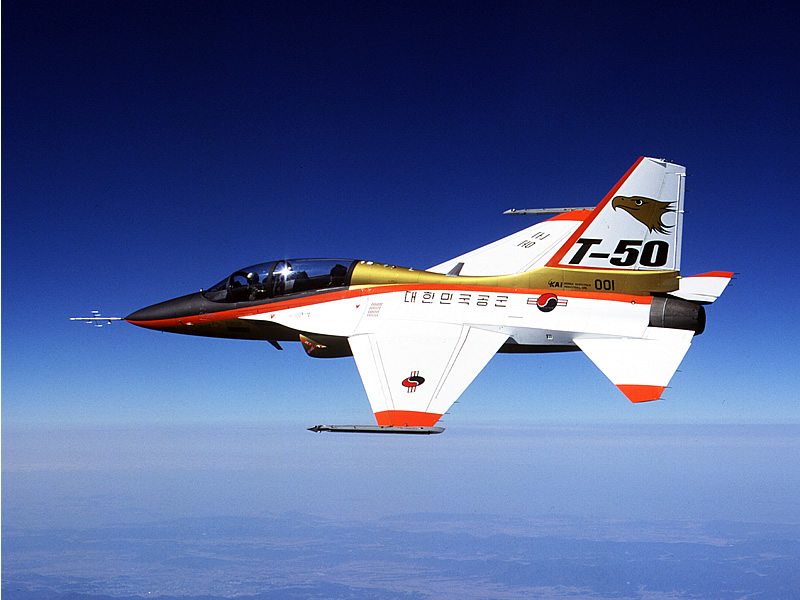The Peninsula
Korea's Defense Exports to India: The Tough Part of a Strategic Partnership

By Nicholas Hamisevicz
Last month South Korea’s Defense Acquisition Program Administration (DAPA) commissioner Noh Dae-lae stated that DAPA had exceeded its defense exports goals last year and was now attempting to sell over $3 billion defense exports in 2012. South Korea might have hit that $3 billion mark last year if it won a contract from the Indian Air Force to supply 75 KT-1 fighter aircraft trainers. Despite losing out on the bid, South Korea’s should continue to compete for military acquisition bids by the Indian military and other emerging countries to help strengthen partnerships and enhance its domestic military development.
South Korea is looking to increase its military exports. Shipbuilding has typically been one of South Korea’s main advantages. Last year, Korea was able to win a contract worth around $500 million for eight minesweepers to India to help protect Indian harbors from being mined by enemy submarines.
Korea has also had success in selling fighter aircraft trainers abroad. The KT-1 and the T-50 are the two fighter trainers Korea has pushed in competitive bid selections by foreign countries. Indonesia bought 12 KT-1 fighter trainers in 2001 and signed a deal last year to buy 16 T-50 fighter jet trainers from Korea. Turkey agreed to buy 40 KT-1 trainers as well.
Success in these countries led to the KT-1 competing in India’s bid for fighter trainers. The KT-1 recently came in second behind the Swiss Pilatus PC-7 in this competition. However, South Korea has filed a complaint arguing that Switzerland’s Pilatus Aircraft Ltd. did not submit a maintenance transfer of technology cost assessment (MTOT), giving the Pilatus PC-7 aircraft a cost advantage over the other competitors. The complaint appears to have delayed the Indian Air Force’s process of moving forward with Pilatus, but it will likely be difficult to see the decision reversed and given to the KT-1.
The intense competition to win the fighter trainer contract and the uncertainty around the decision recalls the rejection by India’s Ministry of Defense of the U.S.’s bids from Boeing with its F-18 and Lockheed Martin with its F-16 for the medium multi-role combat aircraft (MMRCA) competition. Dassault’s Rafale fighter recently won this high-profile bid.
The combination of companies trying to win military contracts worth millions of dollars (or billions with the MMRCA bid) and countries attempting to augment their partnerships with a rising India makes these bids even more competitive. India’s desire to strengthen its military capabilities and its history of purchasing equipment and arms from variety of companies from multiple countries will likely remain, keeping competition for military contracts fierce. Winning a large military contract with India helps solidify a country’s strategic partnership with Indian and provide a unique connection that further enhances the relationship between the two countries. South Korea is hoping its new strategic partnership with India would lead to success with its defense exports to the rising power. Winning the minesweeper contract but difficulties with the fighter trainer competition demonstrate the tough aspects of the military acquisition process in India. However, South Korea should continue to pursue military bids in India and create connections with Indian military officials, which will benefit the long-term strategic aspects of their strategic partnership and the enhancement of overall South Korea – India relations.
Picture by Defense Industry Daily
